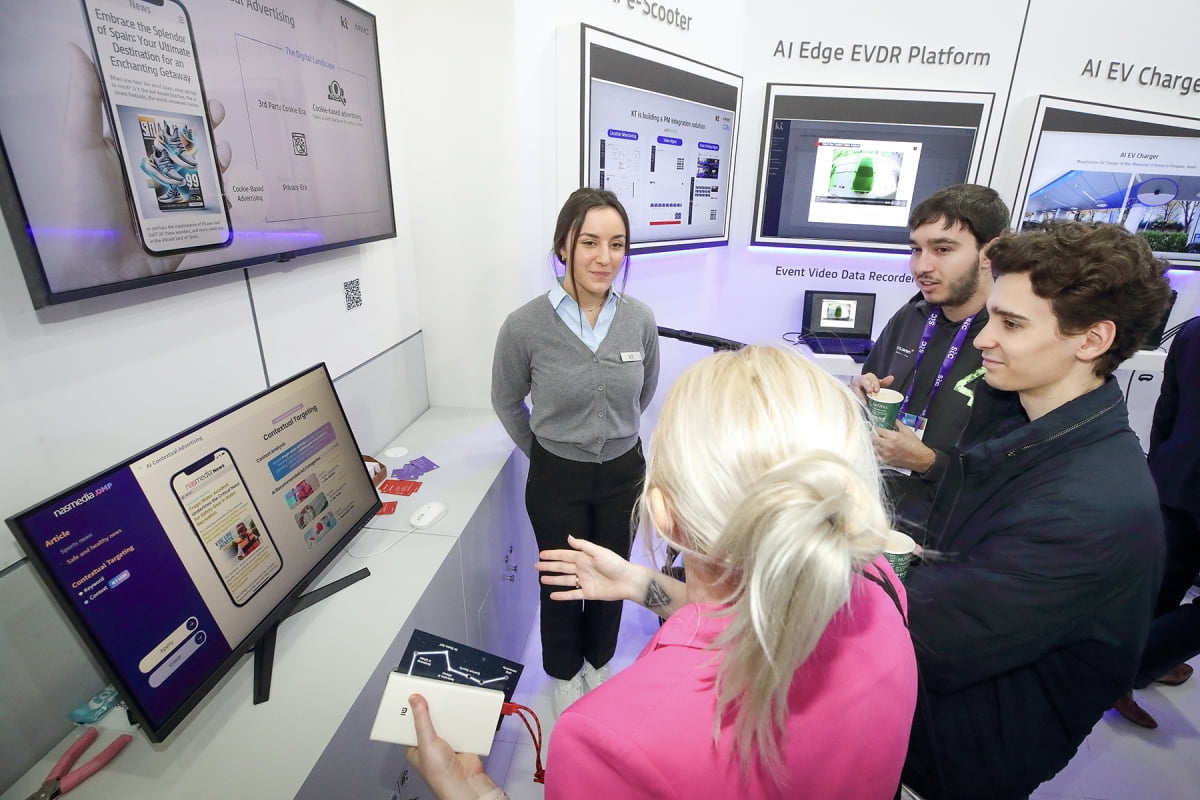Physical Address
304 North Cardinal St.
Dorchester Center, MA 02124
Physical Address
304 North Cardinal St.
Dorchester Center, MA 02124

The development and implementation of AI context-based advertising technology is expected to have a significant impact on the advertising industry. This innovative technology, showcased at MWC 2024 by KT and Nasmedia, is set to revolutionize the way online news consumers receive advertisements.
One of the key effects of AI context-based advertising technology is the ability to provide personalized advertisements to users. By analyzing the context of online news articles and matching relevant ads, this technology ensures that users receive advertisements that align with their interests and preferences. This level of personalization is expected to increase user engagement and improve the effectiveness of advertising campaigns.
Furthermore, AI context-based advertising technology minimizes the problem of content and advertising mismatch. Unlike traditional advertising platforms that rely on keyword matching, this technology ensures that advertisements are closely related to the content of news articles. By minimizing the possibility of irrelevant or mismatched ads, a smoother user experience is provided.
The goal of AI context-based advertising technology is to enhance the overall user experience by providing ads that are highly relevant to the content users consume. By offering advertisements that are closely related to the content users are interested in, this technology aims to increase user participation, click-through rates, and conversion rates. Ultimately, this improved user experience can lead to higher brand loyalty and customer satisfaction.
In addition, AI context-based advertising technology is expected to significantly enhance the effectiveness of advertising campaigns. The ability to generate product descriptions based on the purpose and information of news articles, and recommend ads that align with the context and situation of the articles, opens up new possibilities for advertisers. This technology allows advertisers to reach their target customers more accurately, increasing conversion rates and return on investment (ROI).
As the advertising industry transitions to a “cookie-less” era, AI context-based advertising technology provides a viable solution. By analyzing the context of news articles without relying on cookies, this technology enables advertisers to continue delivering personalized ads to users. Advertisers must adapt to the changing online advertising landscape to maintain their targeting capabilities.
The development and implementation of AI context-based advertising technology represent a significant technological advancement in the advertising industry. This technology has the potential to revolutionize advertising practices and improve the overall effectiveness of advertising campaigns. Advertisers can leverage this technology to reach their target customers more effectively and provide users with more appealing and relevant advertising experiences.
The implementation of AI context-based advertising technology has brought about significant changes and advancements in the advertising industry. This innovative technology has had several notable effects on the way advertisements are delivered and consumed, transforming the advertising landscape.
One of the key effects of AI context-based advertising technology is the enhanced personalization of advertisements. By analyzing the context of online news articles and matching relevant ads, this technology ensures that users receive advertisements that align with their interests and preferences. As a result, users are more likely to engage with these personalized ads, leading to increased click-through rates and conversion rates. This personalized approach to advertising has also been shown to improve brand loyalty and customer satisfaction.
Another effect of AI context-based advertising technology is the minimization of content and advertising mismatch. Unlike traditional advertising platforms that rely on keyword matching, this technology ensures that advertisements are closely related to the content of news articles. By providing users with relevant and contextually appropriate ads, this technology enhances the overall user experience and reduces the likelihood of irrelevant or mismatched ads. This, in turn, fosters a more positive perception of the advertised brands and products.
Furthermore, AI context-based advertising technology has significantly improved the effectiveness of advertising campaigns. By generating product descriptions based on the purpose and information of news articles, and recommending ads that align with the context and situation of the articles, this technology enables advertisers to reach their target customers more accurately. This precise targeting increases the likelihood of conversions and improves the return on investment (ROI) for advertisers.
The introduction of AI context-based advertising technology has also addressed the challenges posed by the transition to a “cookie-less” era. As the industry moves away from relying on third-party cookies, this technology provides a viable solution for advertisers to continue delivering personalized ads to users. By analyzing the context of news articles without relying on cookies, advertisers can maintain their targeting capabilities and deliver tailored advertisements to their intended audience.
Overall, the implementation of AI context-based advertising technology has revolutionized the advertising industry. Through enhanced personalization, reduced content and advertising mismatch, improved campaign effectiveness, and adaptation to the changing advertising landscape, this technology has reshaped the way advertisements are delivered and received. Advertisers can now reach their target audience more effectively, leading to increased engagement, conversions, and overall success in their advertising efforts.
If you’re wondering where the article came from!
#